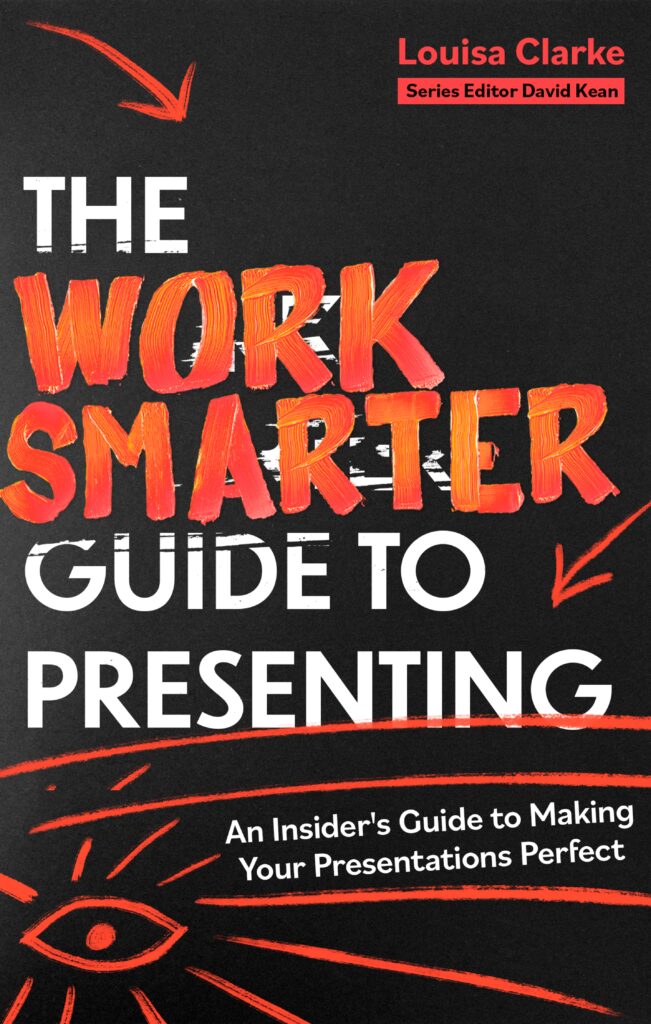It’s the night before your presentation. Perhaps you’re due to deliver the keynote speech at a conference. Perhaps it’s the big pitch to a prospective client you’ve been chasing for the past 18 months. Or perhaps you’re due to make a speech in front of your company or team and have to deliver some bad news. Either way, you’re half dreading it, half can’t wait for it to happen because currently it’s all you can think about and your mind is churning as you run through all the things that could possibly go wrong.
These include:
- Failing to set your alarm and over-sleeping so you’re either late or miss your slot entirely
- Forgetting your laptop with the presentation on it/leaving it on the tube
- Tripping over something and falling onto the stage in the manner of Jennifer Lawrence at the Oscars only not looking quite so elegant
- Forgetting every single word of your speech
- Being heckled by the audience
- Being booed off-stage
- And on, and on
However unlikely it is that any of these will actually happen in reality, there’s something about giving presentations that gives so many of us so much angst.
Over the years, I’ve worked with senior women and men responsible for multimillion-pound budgets and teams of hundreds of people whose decisions make the difference between organisational success or failure.
These people seem uber-confident, unruffled and experienced, and yet so many of them say to me: ‘I hate presenting. I really hate it.’ And then do all they can to avoid doing anything that might help them become better. They won’t write a script; they won’t be clear about what key message they want to get across; and they won’t, God forbid, rehearse. Instead, they rock up to an internal meeting, town hall or even a keynote speech and ‘wing it’ – speaking off the cuff (which is code for rambling on), fidgeting and pacing the stage (because they think they’ll look like Steve Jobs – they don’t), running on too long and boring their audience to tears. Harsh but, unfortunately, true.
One client epitomised this approach. He said, ‘I hate presenting. But I won’t do anything to prepare myself to be better at it because if I do nothing, then at least I can blame my bad performance on the fact that I didn’t rehearse.’ There’s a kind of logic to this but why, in a world that encourages us to ‘be our best selves’ and where we take the rest of our professional development so seriously, do we allow ourselves to be so mediocre when it comes to presenting?
My response to this client and to every other client who comes up with this approach is ‘Get over yourself.’ It’s a message that I first told myself when, like my clients, I spent hours twisting my thoughts into mental knots about why I was so bad at something and still did nothing to improve it. The reality is either you choose to do what it takes to improve or shut up with the excuses. As my son frequently says to me, ‘No one cares.’
Well, that’s not entirely true. I care.
I care because I’ve seen the transformation of individuals and businesses as they get out of old, ineffectual habits to enjoy vastly improved results by adopting a different approach to presenting. I care because I hate to see brilliance go to waste as great ideas are diluted or lost in a fog of badly presented, over-complex and instantly forgettable charts. I care that people are working stupid hours because they didn’t get organised the moment the meeting invitation pinged into the inbox.
Here are three tips to make you care too:
1. As Yoda said, ‘Do or do not. There is no “try”.’
Presenting well is really only about one thing. Practice. If you’re not 100 per cent committed to practising (AKA rehearsal) then don’t bother. I can be incredibly eloquent in my head, as I lie in bed, imagining myself on stage wowing the audience, but I know that unless I do all the hard work of planning, preparing and rehearsing (which means speaking out loud not just running through your words silently in your head), that image will remain what it is – a dream.
2. Don’t do it all at the last minute.
A statement from the department of the bleeding obvious perhaps, but piss-poor time management is probably the biggest contributor to piss-poor presentations. Many of us love the adrenaline of the looming deadline but wasting between 20 and 50 percent of the time available by procrastinating instead of getting cracking immediately doesn’t add a gritty edge of brinkmanship to your presentation, it just means you’re on the back foot. Get on with it ASAP and aim to finish – rehearsals and all – 24 hours before the day of delivery. Imagine that – a good night’s sleep the night before you make your presentation. It can be done and it makes a HUGE difference to your energy and attitude on the day.
3. Less is more.
We love to think our audience is soaking up our words like a sponge, absorbing and remembering every line of our incisive thoughts. Yet we know from our own listening habits that this simply isn’t the case. Our brains can only remember so much. So limit the number of key points you want to make.
A good discipline is for every presenter to write down the one thing the audience must remember by the time that presenter sits down. Write that point on a Post-it note – this forces people to focus on what’s important. It stops presenters waffling. It’s a self-editing tool to sharpen your presentation and it ensures that each section of the presentation has a point.
With a bit of practice, everyone has the ability to stand up and give a presentation, speech, lesson or vote of thanks in a way that captures the audience’s attention. One that actually makes them think, feel or do something as a result. All without giving you sleepless nights and raging anxiety in anticipation. And that’s liberating.
Louisa Clarke is the author of ‘The Work Smarter Guide to Presenting – an insider’s guide to making your presentations perfect’ – published by Robinson on 13th June 2024






